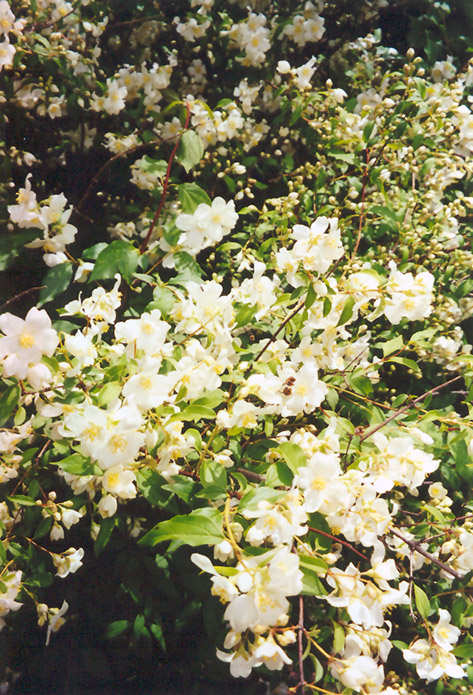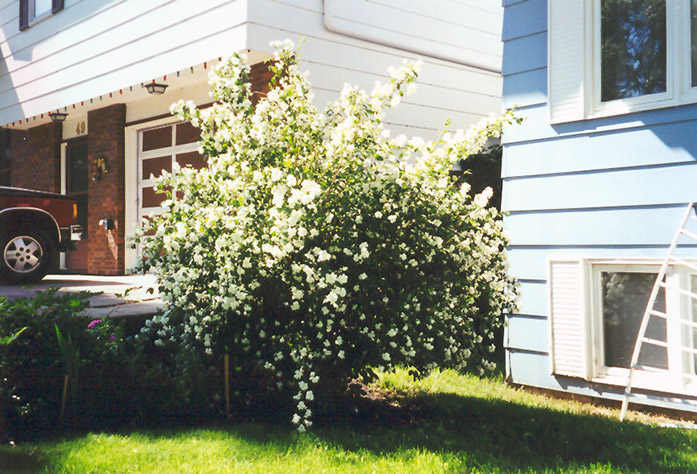Cheyenne® Mock Orange Philadelphus lewisii 'PWY01S' Height: 8 feet Spread: 8 feet
Sunlight:
Hardiness Zone: 3a Other Names: Mockorange Description: A large, adaptable shrub that features a profusion of white flowers in late spring with a sweet, citrusy fragrance; a tough, drought tolerant shrub with attractive blue-green foliage and a pleasing, billowy habit; tolerates poor heavy soil and dry shade Ornamental Features Cheyenne® Mock Orange features showy clusters of fragrant white flowers with yellow eyes at the ends of the branches from late spring to early summer. It has green foliage with hints of powder blue. The serrated oval leaves do not develop any appreciable fall colour. Landscape Attributes Cheyenne® Mock Orange is a multi-stemmed deciduous shrub with an upright spreading habit of growth. Its average texture blends into the landscape, but can be balanced by one or two finer or coarser trees or shrubs for an effective composition. This is a relatively low maintenance shrub, and should only be pruned after flowering to avoid removing any of the current season's flowers. It has no significant negative characteristics. Cheyenne® Mock Orange is recommended for the following landscape applications; Planting & Growing Cheyenne® Mock Orange will grow to be about 8 feet tall at maturity, with a spread of 8 feet. It tends to be a little leggy, with a typical clearance of 2 feet from the ground, and is suitable for planting under power lines. It grows at a fast rate, and under ideal conditions can be expected to live for approximately 30 years. This shrub does best in full sun to partial shade. It is very adaptable to both dry and moist locations, and should do just fine under average home landscape conditions. It is considered to be drought-tolerant, and thus makes an ideal choice for xeriscaping or the moisture-conserving landscape. It is not particular as to soil pH, but grows best in poor soils. It is highly tolerant of urban pollution and will even thrive in inner city environments. This is a selected variety of a species not originally from North America.![]()
![]()
![]()
![]()
![]()
![]()
![]()
![]()
![]()
![]()
![]()


